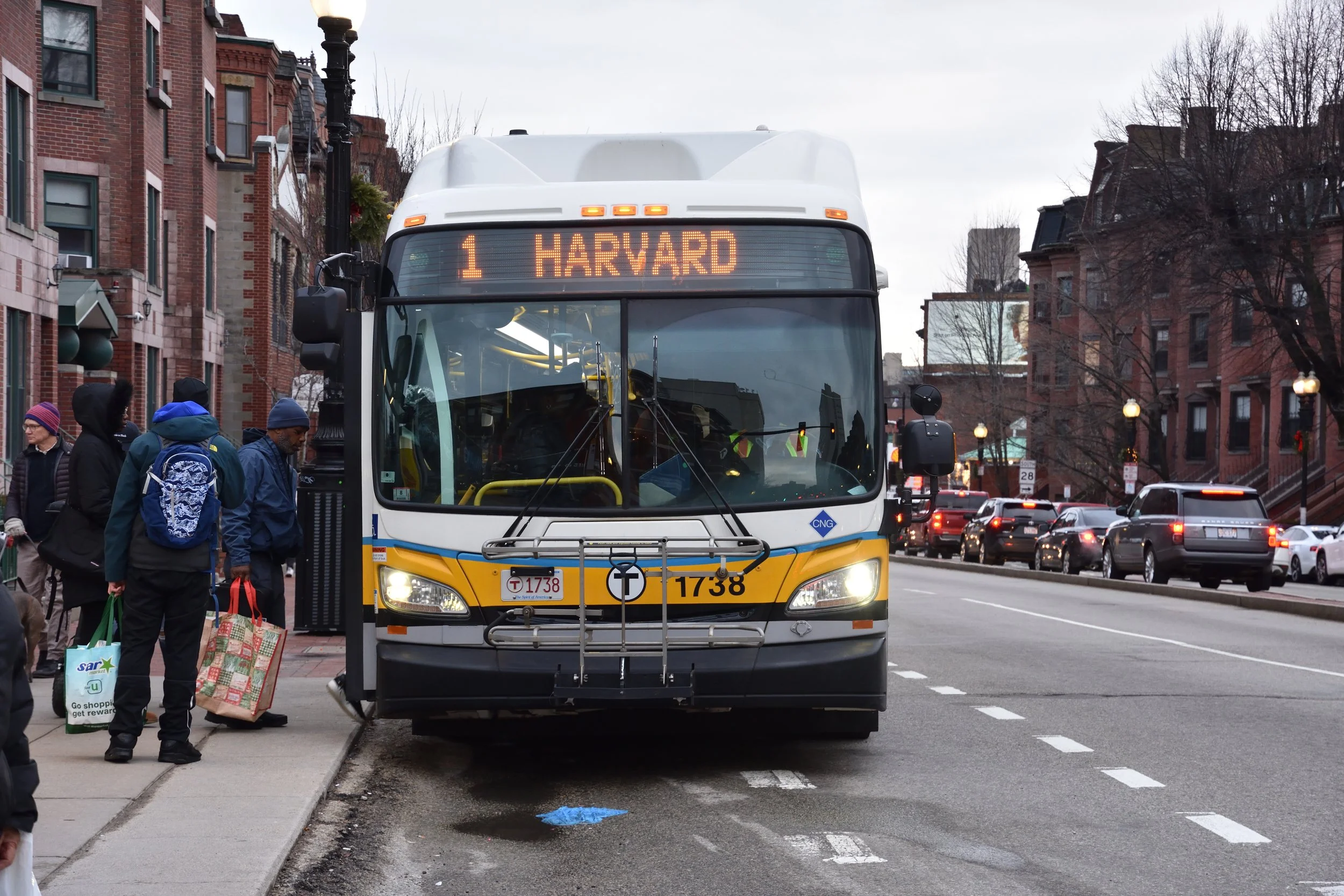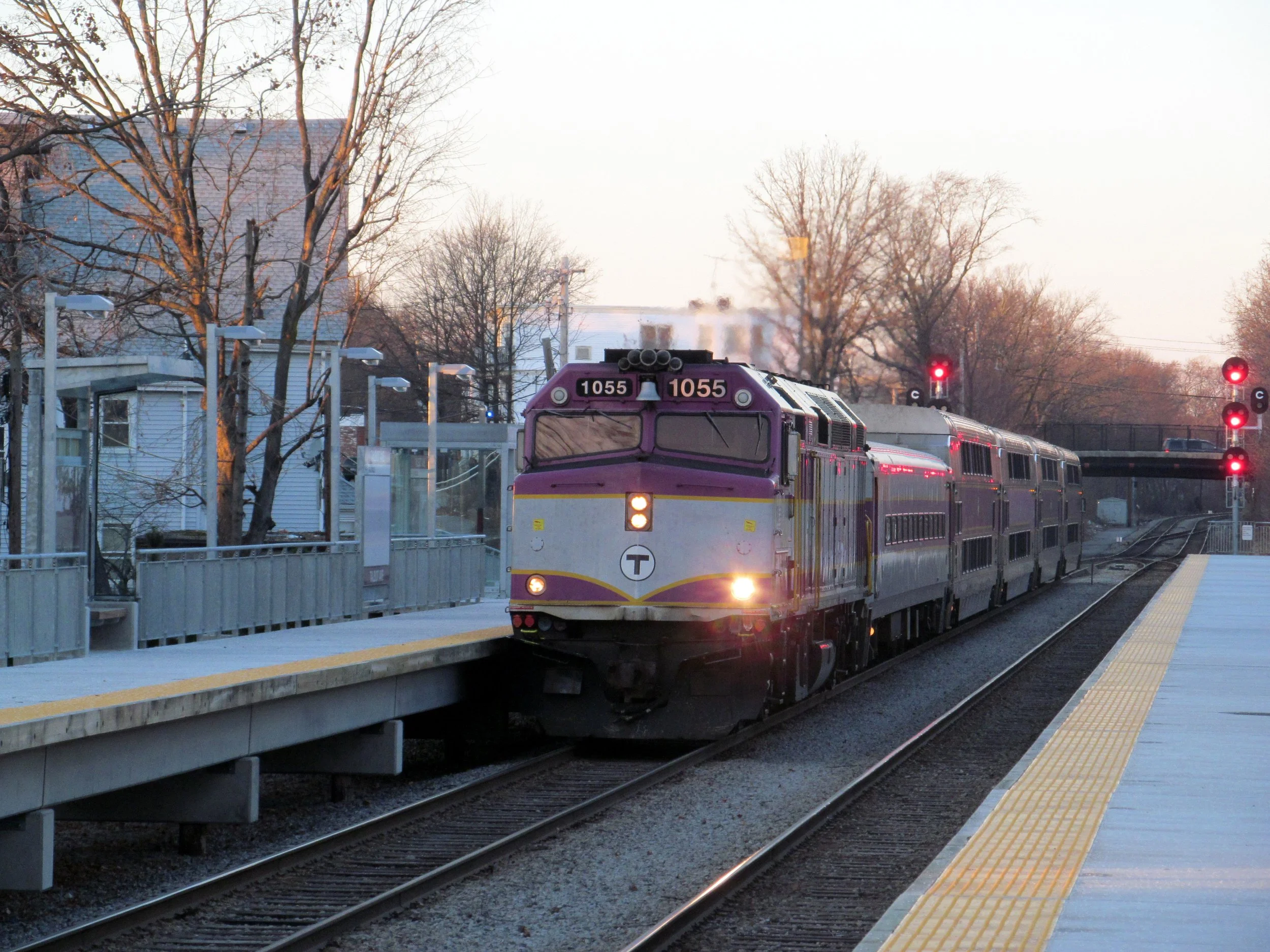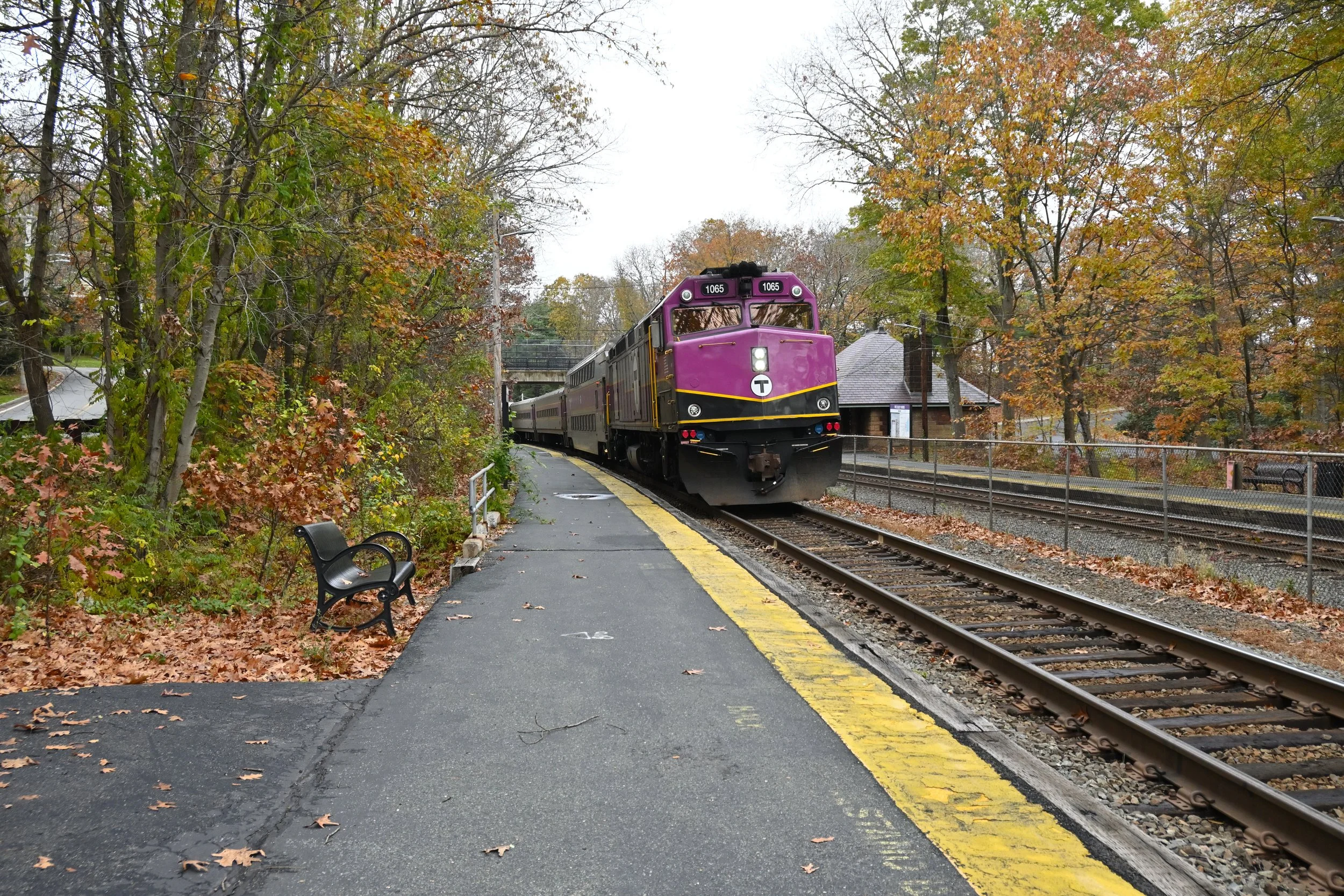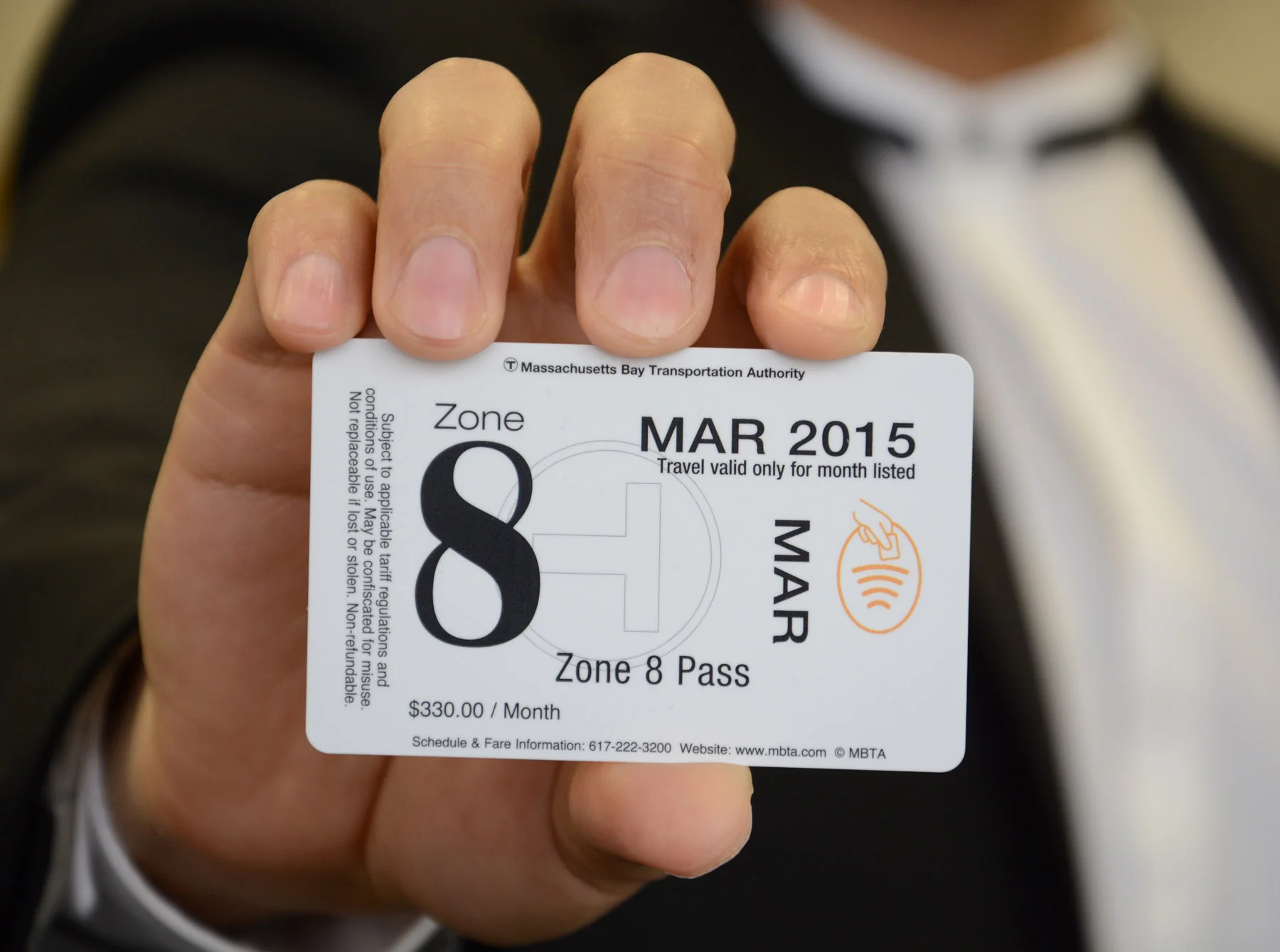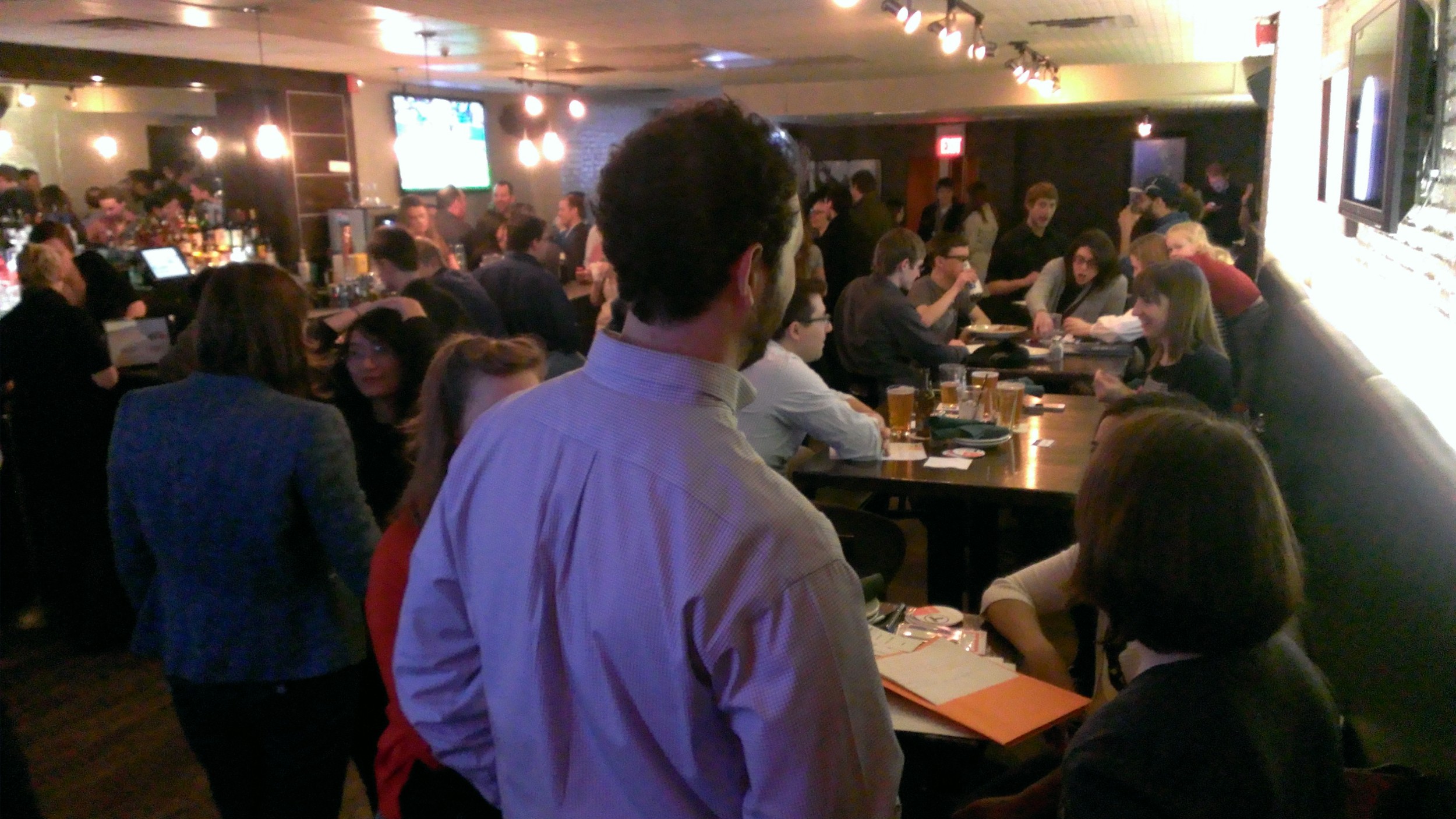 The turnout for this evening's LivableStreets first (hopefully annual, semi-annual, quarterly, or even monthly) T trivia night was on-par with what programming manager Kara Oberg had expected, but definitely filled the room on the lower level of Lir on Boylston St. On the evening's agenda: drinks, food, networking, and community-building.
The turnout for this evening's LivableStreets first (hopefully annual, semi-annual, quarterly, or even monthly) T trivia night was on-par with what programming manager Kara Oberg had expected, but definitely filled the room on the lower level of Lir on Boylston St. On the evening's agenda: drinks, food, networking, and community-building.
'I just met these people an hour ago', said a student among a group that seemed to have known each other for years. The group, itself, a perfect mix of the attendees this evening: students, train enthusiasts, and professionals across every trade.
At the adjacent table, former LivableStreets board member, current Walk Boston board member, and graphic designer Nina Garfinkle sat with David Loutzenheiser, transportation planner of MAPC, and several others. A mix of who's who of transportation advocacy and trivia lovers, the event seemed like it was only missing a visit from MassDOT secretary Richard Davey and newly appointed MBTA GM Dr. Beverly Scott.
The trivia questions ranged from MBTA triviata to political and financial issues. One of the first round of questions included facts about the Boston's Green Line being the most heavily used light rail line in the US and the origin of the T's iconic logo of a 'T' in a circle.
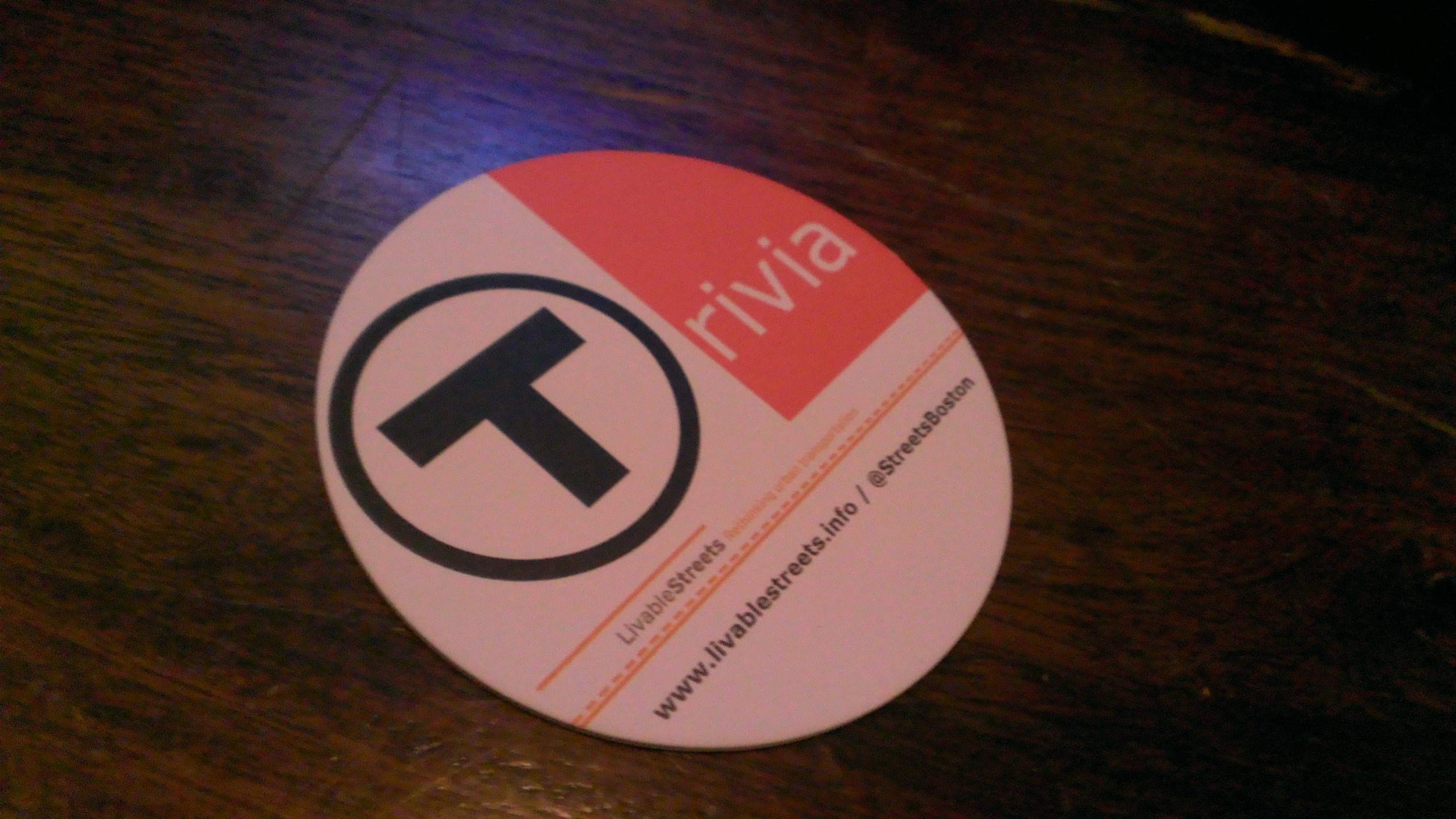 Artie, a transportation engineer from HDR Engineering, brought in many of his friends to form his team. A designer of the very streets we walk, drive, and bike on or travel rapidly underneath, he was very 'new school' of those within transportation engineering, many of whom are notorious for taking an auto-throughput-first view of street design. Upon mention of 'sidewalk bumpies', he politely enlightened me of their more correct industry term: detectable warning pads. His consultancy work with the city of Boston and its outlying areas has even brought him into the engineering and design of innovative mid-block crossing notification strips for the visually impaired, a feature often not needed in or overlooked by most walkable American cities because of their lack of mid-block pedestrian crossings.
Artie, a transportation engineer from HDR Engineering, brought in many of his friends to form his team. A designer of the very streets we walk, drive, and bike on or travel rapidly underneath, he was very 'new school' of those within transportation engineering, many of whom are notorious for taking an auto-throughput-first view of street design. Upon mention of 'sidewalk bumpies', he politely enlightened me of their more correct industry term: detectable warning pads. His consultancy work with the city of Boston and its outlying areas has even brought him into the engineering and design of innovative mid-block crossing notification strips for the visually impaired, a feature often not needed in or overlooked by most walkable American cities because of their lack of mid-block pedestrian crossings.
His most interesting insight was something that many miss when talking about re-urbanisation: I think that many disabled people will start moving into cities because of their ability to provide [the disabled] services and accessibility that suburbs simply can't provide in order to give them independence. In areas outside the T, mobility and independence can be very costly and time-consuming for the disabled, as shown by The Ride's growing costs and hurdles as compared to the rest of the MBTA's operations. Even as the fixed routes of the T have become more accessible, affording the disabled and elderly better independent mobility, other systems have been improving their accessible services, like the MTA in New York and the CTA in Chicago that have started piloting newer, more flexible vehicles designed specifically for accessible door-to-door transit services.
A number of student organisers from Northeastern were also present, including Justin Bensan, Daniel Morrissey, Alexa Torres, Jake Berman. The group is in the process of creating a 'transportation club' at Northeastern as a means of bringing forward mobility issues at their school and building a community around alternative transportation issues. Led by Jake Berman, president of the nascent club, and Justin Bensan, founder of the Northeastern branch of Students Against T Cuts, the group wants to build the club on the momentum from last year's unified protests against severe service cuts and advocacy of more balanced transportation funding.
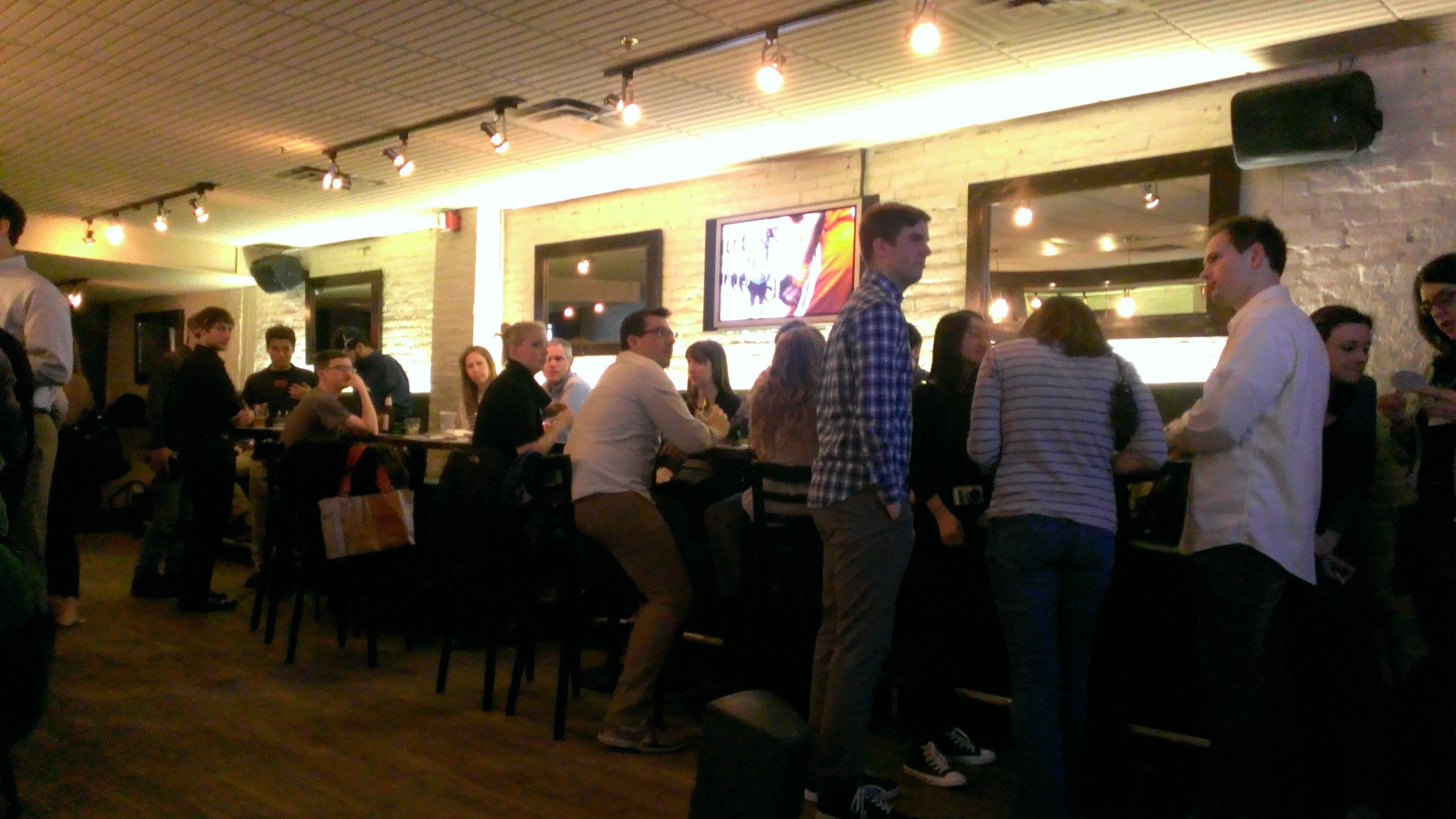
In the hopes that this might be a more regular event, I asked Kara about the next T trivia night. Of all the planning that had to come together for the evening, she noted the most time-consuming was coming up with all the trivia questions. That said, I challenge the state's decision-makers to come to LivableStreets' next T trivia night to see how much they actually know about the system that drives the economic engine of the Commonwealth.
Not everyone has to be a transportation expert or historian on the T, but without an appreciation for it, we may as well be blind to the T's funding problems as we would a spewing, backed up toilet.

